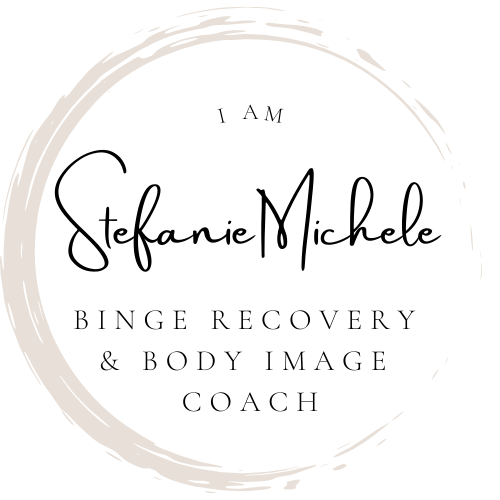Can you eat intuitively and be healthy at the same time?
A common misconception about Intuitive Eating is that it de-prioritizes health. Either you choose food freedom or you choose a healthy "lifestyle".
The reason this feels true is because there absolutely IS a period of putting nutrition on the back burner as you heal your relationship with food. The initial phase of Intuitive Eating is sometimes referred to as the "Honeymoon Period" and yes, it can look "unhealthy" in terms of giving yourself permission to consume what you might refer to as "junk food," and plenty of it.
Without this honeymoon phase, food freedom is not likely to occur.
Many people sit in this phase for a while, get scared, and feel like they need to "get back on track," and ultimately run back into the arms of wellness lifestyles and/or diets to feel safe again. We are taught that health is under our control when we are eating "well" and losing weight (or at least trying to eat well and lose weight).
I was obsessed with my health for many, many years and this phase of healing was a mental challenge for me. I felt a lot of discomfort choosing syrupy, white-bread French Toast for breakfast over my usual eggs & avocado & blueberries. I don't think I had a salad for months in the beginning, opting instead for focaccia sandwiches and ice cream bars and cereal.
This phase lasted for 3-6 months before I was ready to look at produce again. Maybe even a little longer.
The scariest part was that I wasn't even sure I would ever stop. What if I only ever want ice cream and cereal for lunch? Because it sure feels like that might be the case in the beginning.
The reason Intuitive Eating works is that, given enough time and true freedom, your body recalibrates its preferences because it doesn't feel like it has to hoard fats and carbs and sugars anymore. It trusts that you might actually be serious about allowing all foods, and that restriction is not around the corner. When it stops hearing the inner dialogue of judgment and threats of another weight loss plan in the back of your mind, it learns to relax and crave variety.
But let's consider something else.
Health, as we were brought up believing, is about what you eat and how much you weigh. For all intents and purposes, weight and health are taught to us as synonyms. A healthy person cannot be fat, and thin people are assumed to be healthy. Without knowing anything else about a person, these characteristics are assumed.
What does health mean to you, though? Does it mean:
Low blood pressure?
High energy?
Regular exercise?
Eating fruits and vegetables?
Not bingeing?
Drinking 8oz water a day?
Not smoking?
Absence of disease?
Our culture is so used to thinking of health in terms of food, weight, and exercise that it completely bypasses health markers that are actually shown in studies to be linked to longevity, like:
Feeling connected to your community
Stress management
Adequate sleep
Life satisfaction and sense of purpose
Self-compassion and positive self-talk
Healthy mindset
Genetic predispositions
When you look at a more holistic view of health, you see that nutrition is a piece of the pie, but only a piece. There are more avenues to health than we are taught to believe, and weight isn't actually a prerequisite to any of them.
You can eat vegetables, get high quality sleep, exercise regularly, drink water, socialize, manage stress, and speak kindly to yourself WITHOUT LOSING A POUND.
If health behaviors are present, you're accessing health.
You do not need to weigh a certain amount to engage in healthy behaviors.
We are so blinded by the idea that fat equals unhealthy that we fail to understand the mechanisms by which authentic health actually occurs.
In my quest to weigh less, I actually INCREASED my unhealthy behaviors by losing sleep, massively increasing stress, binge eating, speaking to myself with shame and disdain, and over-exercising to the point of throwing off my thyroid and cortisol blood markers.
Healing your relationship with food and your body actually creates room for MORE health-promoting behaviors because you are not chasing a dream that requires you to neglect 80% of the health pie in favor of honoring the other 20%.
After chasing health like a fiend for years, I healed my relationship with food and body and found myself able to access actual health, independent of my weight. (For reference, I am not what society would consider a "thin" person.)
If health is of value to you, consider:
What behaviors am I engaging in now that I consider to be healthy? What behaviors do I engage in that I consider to be unhealthy? Do any of these behaviors have to do with my weight?
If you’d like to work with me around these belief systems, you can fill out an application here.

